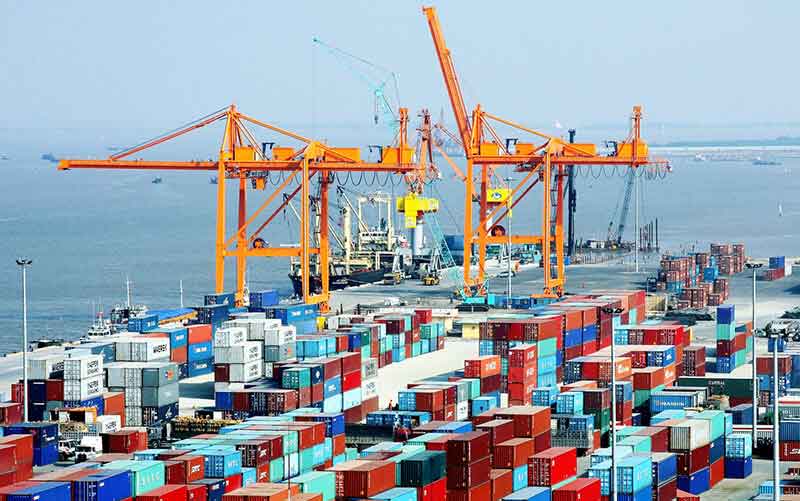CLASSIFICATION OF CURRENT FERTILIZERS
Fertilizer is a product that provides nutrients for plants or improves soil through roots or leaves to increase yield and quality of plants. On the current fertilizer market, the ingredients and names of fertilizers are very diverse. Normally, we rely on 2 factors to classify fertilizers:
I. BASE ON ORIGINAL MATERIALS AND PRODUCTION PROCESS
With this factor we can divide fertilizers into the following 3 categories:
- Chemical fertilizers (inorganic fertilizers): including fertilizers produced from the main raw materials which are inorganic or synthetic organic substances, processed through chemical or mineral processing and depending on composition, content, function or quality criterion for plants or chemical bonding of nutritional elements in fertilizers which are classified in detail in the national technical regulations.
- Organic fertilizers: including fertilizers produced from the main raw materials which are natural organic substances (excluding synthetic organic substances), processed through physical processes (drying, grinding, sieving, blending, wetting) or biological (annealing, fermentation, extraction) and depending on the composition and function of the main quality indicators or the production process which are detailed in the national technical regulations.
- Biological fertilizers: including fertilizers produced through biological processes or having natural origin, in the composition containing one or more biological substances such as humic acids, fulvic acids, amino acids, vitamins or other biological substances and depending on the composition or function of the main quality criteria in fertilizers which are classified in detail in national technical regulations.
II. BASE ON METHOD OF USE
Depending on the different uses, people classify fertilizers into the categories such as:
- Foliar fertilizer: is a fertilizer belonging to one of the groups of organic, inorganic and biological fertilizers used to provide nutrients for plants through stems and leaves.
- Root fertilizer: is a fertilizer belonging to one of the groups of organic, inorganic, biological fertilizers used to provide nutrients for plants through the root system or have the effect of soil improvement.
PROCEDURE FOR RECOGNITION OF CIRCULATION OF FERTILIZERS THAT REQUIRE TESTING
State agencies, while doing the fertilizer import procedures, will classify fertilizers according to the source of raw materials and the production process. Fertilizer is a commodity product of group 2 – conditional business recognized for circulation in Vietnam by the Plant Protection Department.
Each organization or individual is only allowed to register for recognition of 01 fertilizer name for each ingredient formula and nutrient content of registered fertilizer. Fertilizers must be tested before being recognized for circulation in Vietnam, except for the following fertilizers that are not required to be tested:
1. Organic fertilizer (using for root).
2. Single inorganic fertilizer (using for root and ingredients must comply with the law).
3. Complex inorganic fertilizers (using for root and ingredients must comply with the law).
4. Fertilizers that are recognized by the competent authority as technical progress.
5. In cases where fertilizers are imported from abroad, it’s necessary to conduct the procedures for applying for import permits for testing for the fertilizer groups that requires testing.
I. APPLICATION FOR FERTILIZERS FOR TESTING IMPORT LICENSE
- Place of issue: Plant Protection Department.
- Processing time: 30 working days.
- Dossiers to prepare:
1. Application for import of fertilizers.
2. True copy of Enterprise Registration Certificate or Investment Certificate.
3. Technical declaration (Note: the amount of fertilizers produced and imported for testing is determined based on the fertilizer dosage for each type of plant and the actual tested area according to the national standards on fertilizer testing).
4. Foreign version and Vietnamese translation: quality criteria, uses, instructions for use, safety warnings and limiting factors in fertilizers.
5. Certificate of free sale (CFS) issued by the exporting country.
II. FERTILIZER TESTING
-
Testing place: The competent testing center.
-
After obtaining a license to import fertilizers, the enterprise signs a contract with the testing center. Fertilizers were tested on both a large and narrow scale; a large scale test is conducted only after the narrow scale test is completed.
-
Duration of experimentation on trees: 03 months on vegetables or 01 year on fruit trees, industrial plants.
III. RECOGNITION OF FERTILIZERS CIRCULATING IN VIETNAM
- Implementation time: 04 months.
- Documents to prepare:
1. An application for recognition of fertilizers circulating in Vietnam.
2. Certificate of free sale (CFS) of the fertilizers expected to import.
3. General information sheet about fertilizers’ components.
4. Report on results of fertilizer testing.
5. Fertilizer label sample.
=> Decision is valid for 05 years. 03 months before the expiration, it must be re-recognized.
Note:
- Fertilizers are not recognized for circulation in the following cases:
- There is new scientific evidence that fertilizers have a high risk of adverse effects on human health and the environment;
- Detecting using fake documents or providing information in the document is not correct with the recognized fertilizer.
* Recognition form:
- Initial recognition: fertilizers are researched or made domestically; fertilizer import to Vietnam for the first time.
- Re-recognition: changes or additions to information related to organizations and individuals in the Decision on Recognition of circulation of fertilizers; The decision on recognition of fertilizer circulation is lost, damaged; Change the fertilizer name according to decision of a competent management authority or according to a court judgement or decision in case of violation of the law on intellectual property.
In addition, Glaw Vietnam specializes in consulting on fertilizer import procedures. Individuals or enterprises wishing to import fertilizers or want to learn more about the procedure can contact Hotline: 0945.929.727 or email: [email protected].


 Tiếng Việt
Tiếng Việt

